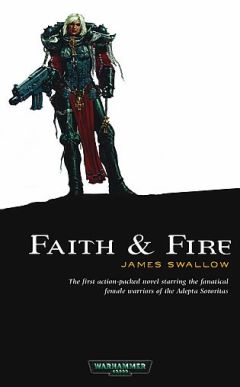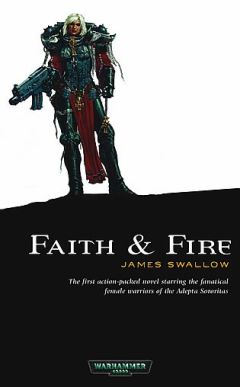Пользователь - WORLDS END
На электронном книжном портале my-library.info можно читать бесплатно книги онлайн без регистрации, в том числе Пользователь - WORLDS END. Жанр: Прочее издательство неизвестно, год 2004. В онлайн доступе вы получите полную версию книги с кратким содержанием для ознакомления, сможете читать аннотацию к книге (предисловие), увидеть рецензии тех, кто произведение уже прочитал и их экспертное мнение о прочитанном.
Кроме того, в библиотеке онлайн my-library.info вы найдете много новинок, которые заслуживают вашего внимания.

Пользователь - WORLDS END краткое содержание
WORLDS END читать онлайн бесплатно
He went back to the question of Shantung, which now was destroying the peace of mind of the Crillon staff. His mother went to packing her belongings, and then to pacing the floor and smoking one cigarette after another. She couldn't eat anything, she couldn't think anything but: "Kurt! Kurt!" She saw him in a score of different places with the hands of French police agents being laid upon his shoulders. She saw herself weeping in Emily's room, pleading for forgiveness, explaining how she had kept this dreadful secret from her friend for the friend's own good. She saw herself on her knees before French officials, weeping, begging for mercy which they wouldn't or couldn't grant. Always she saw herself hating war, going to live in some part of the world where it wasn't - but what part was that? Why had God made so many wretched creatures, born to trouble as the sparks fly upward? Because of a pious upbringing, Beauty had phrases like this in her mind.
V
All through the proceedings of the conference the little Japanese delegates had sat listening, polite but inscrutable. They had tried to get into the Covenant of the League a provision for "racial equality," intended to get them access to California and Australia. That proposal having been turned down, they waited, studying the delegates and learning all they could. Which meant what they said and which could be bluffed or cajoled? Japan had taken the rich Chinese province of Shantung and meant to keep it unless it meant war with somebody. Would it, or wouldn't it?
The American staff was agog over this problem. If the Japanese had their way, it meant that the Fourteen Points had gone up in smoke. The patient, ever-smiling Chinese delegates haunted the Crillon corridors, morally and intellectually when not physically. Would "Mister Wilson" stand by them, or wouldn't he? The staff couldn't guess. They knew that "Mister Wilson" had been harried by seven unbroken weeks of wrangling, and was a badly exhausted man. Did he have one more fight left in him? Everybody speculated; and Lanny heard them as if in a dream. An absentminded and far from satisfactory secretary, he was excused because he was so worried about his mother's illness. Every hour he would go to the phone. "How do you feel, Beauty?" She would say: "Not very well."
In the middle of the evening the mother called: "Come at once, please." He went, and found her in a state of tension. Kurt had come, and now had gone to interview someone who had authority over him, to get permission to leave. He had said no more, except that he was sure he could get a passport into Spain. "He says he has friends there," Beauty explained.
Lanny hadn't thought of that. Of course the Germans would be working through Spain as well as through Switzerland, and if they could buy or manufacture passports in one country, they could do it in another.
Beauty was to meet Kurt at an agreed place on the street. "In one hour," she said. "But let's get out of here at once."
Her bags were packed and ready. Lanny paid the hotel bill, explaining that his mother had been called back to her home on the Riviera. The car had been phoned for and was at the door; the bellboys stowed the luggage, and Lanny tipped them generously. The couple stepped in, the car rolled away - and Beauty put her face into her hands and burst into sobbing. So much she had feared in that well-appointed family hotel;, and nothing of it had happened!
They drove slowly about the boulevards, still unlighted, as in war days. After a while Beauty told him to drive to the spot where Kurt was supposed to come. "Draw up to the curb," she requested, and when he did so, she said: "Please go quickly."
"I don't like to leave you here," he objected.
"I'll lock the car. And I have a gun."
"I wanted to wait and see you off."
"Don't you understand, Lanny? The police may be following Kurt! They would want to get his associates, too."
He had to admit that this was reasonable. Since she didn't know how to drive, he asked: What'll you do if he doesn't show up?"
"I'll lock the car and find some place to telephone you."
Lanny had hoped to see Kurt and give them both his blessing; but the most important thing was to calm his tormented mother. He got out, and said: "Tell him that if he isn't good to you I'll turn him over to the Sыretй."
She gave a little broken laugh. "Good-by, darling. Go quickly, please. Don't hang around."
VI
It was late, but Lanny returned to his desk, because documents were piling up and he was a conscientious secretary; also, he doubted if he could sleep. His mind was traveling the Route Nationale that ran south by west from Paris to the Bay of Biscay. He had never traveled it, but knew it would be good, for the safety of la patrie depended upon her roads. The distance was some five hundred miles, and if all went well they would cover that during the night and part of the next day; probably the border would be closed at night. There was a little town called Hendaye, and a bridge, and not far on the Spanish side was a popular resort called San Sebastian. Early in May it might be chilly, but those two had means to warm their hearts. No use thinking about possible mishaps - better to see Alston and work out the next day's schedule.
It was the day of a strange ceremony, the formal presentation of the peace treaty to the German delegation, taking place in the great hall of the Trianon Palace Hotel. The Allied delegates were received with drums and trumpets, which made more awe-inspiring the deathlike silence when the Germans were ushered in. Upon the table in front of their seats had been placed copies of an elaborate printed volume of close to a hundred thousand words, the Treaty about which the whole world had been talking and writing for half a year. The official text, in both French and English, was supposed to be the inspired word; but the Crillon heard strange rumors to the effect that numиrous changes agreed upon at the last moment hadn't been got in, and even that the French had fixed up some things to read the way they wanted them. Whose business had it been to study the document line by line and compare it - with what? How could there be any checking up when three elderly gentlemen had met in the bedroom or study of one of them and kept no record, except for notes made by a trusted friend of Mr. Lloyd George who himself was not always to be trusted?
Anyhow, there was the volume, and Clemenceau arose and made a brief speech to the Germans, informing them that they would have fifteen days in which to make their written observations. Said he: "This second treaty of Versailles has cost us too much not to take on our side all the necessary precautions and guarantees that the peace shall be lasting."
When it came the turn of Count von Brockdorff-Rantzau to answer, he did not rise, but sat motionless in the big leather chair. Perhaps this was because he was ill; but in that case he might have said so, and it appeared that his action was a studied discourtesy. The Allies had put into the treaty a statement to be signed by the Germans, assuming sole responsibility for the war. This filled the count with such fury that his voice shook and he could hardly utter the words: "Such a confession on my part would be a lie."
At the same time the Crillon gave out the news that President Wilson had made an agreement, jointly with Britain, to guarantee France in the event of another attack by Germany. The great master of words had searched his vocabulary once more, and this was not to be an "alliance," but an "understanding"; and of course that made it different. Many of the advisers were in a state of excitement about it, and wherever two of them met there were arguments. "If the treaty were just," declared Alston, "the whole world should help to defend it. But this treaty is going to cause another war; and do we want to obligate ourselves to be in it?" He pointed to the news from Germany, where the government had declared a week of national mourning in protest against the war-guilt declaration.
Lanny Budd wasn't supposed to have opinions; so he ran errands among the excited advisers who had stopped speaking to one another. He noted black looks and listened to angry words, and was unconcerned - because all the time his thought was: "Why don't I get that message?" He knew that the telegraph service of the French government was shockingly disorganized. Why hadn't he thought to tell Beauty to telephone? But he hadn't; so maybe they were safe in Spain, or maybe they were in jail in Tours, or Bordeaux, or Hendaye. Lanny couldn't keep his mind on his work. Until late the next day, when the telegram arrived. Short and sweet it was: "Lanny Budd, Hotel Crillon, Paris: Peace love beauty." Highly poetical - but the important point was that the message was marked from San Sebastian!
VII
How was that oddly assorted couple going to make out? Lanny tried in his spare moments to imagine it. He had learned that you never could tell about other people's guesses in love; you just had to let them guess. Kurt would find that he had taken into his life a woman who hadn't much real interest in his ideas - only in him. Whatever he believed would be the truth and whatever he did would be important. Beauty would be loyal to her man; would take up his cause and fight for - not it, but him.
She talked a great deal and would certainly bore him while motoring over Spain. But she had sense enough to let a man alone if he asked it. If Lanny said he wanted to read, all right, he could go off in a corner of the garden and stay half a day. If Marcel had wanted to paint, or Robbie to play poker, that too was all right. If Kurt could only realize that the war was over, and get his musical instruments together and go on with his work, Beauty would be content to hear him tootling and tinkling all day. She had learned her formula from Emily: Kurt was a composer, and in order to write for any instrument you had to know its range, what fingerings were easy, what were impossible, and so on.
The day that Kurt produced his Opus I, he would become for Beauty the greatest composer in the world; she would take up that composition and fight for it as she had fought for Marcel's art, and for the selling of munitions. She would inquire around and find out who was the topmost conductor of the hour, and somehow she would manage to be in his neighborhood and have him invited to tea. Maybe he would know what was up or maybe he wouldn't, but, anyway, he would hear Kurt's Opus I, and soon it would be performed by a great symphony orchestra, and Beauty would see to it that all the critics were there, and that they met the crиme de la crиme of Paris or London society. Kurt would be dressed for the occasion, and presented to everybody - or would he? Maybe he'd be eccentric, like Marcel, despising smart society, wanting to hide himself! If so, Beauty would fall on her knees and tell him that she was a crude and cheap person, that he might have it his way - any way in the world, so long as he didn't go to war again! (Lanny, living over those days of anguish with his stepfather at Juan-les-Pins!)
Now it was Kurt who was going to be stepfather. What an odd thing! Of course Kurt had always taken the attitude of an elder and Lanny had thought of him as a mentor. As they grew older, fifteen months' difference in their ages would matter less; but probably Kurt would always know what he wanted to do, whereas Lanny might never be sure. Lanny had imaginary whimsical conversations with his friend, in which they adjusted themselves to the trick which fate had played upon them. Anyhow, they wouldn't be jealous of each other; and they would have lots of music in the house! Lanny began to reflect that he ought to concentrate upon that great art and try to make something of himself with Kurt's help.
VIII
The German delegation was bombarding the conference with notes, protesting against the terms of the "monstrous document," as the treaty was called by the President of the German Republic. They said that it was impossible of fulfillment; that in failing to fix the amount of the indemnity the Allies made it impossible for Germany to obtain credit anywhere; that in taking all her colonies and her ships, and requiring her yards to make new ships for the Allies, they were making it impossible for her to have any trade and so condemning millions of people to starvation. The better to continue this bombardment, the Germans brought in a special train with linotype machines and printing presses, and set about preparing a volume of their own, a "counter-proposal." Clemenceau replied with cold rejection of most of the German notes, and the experts and secretaries and translators worked at preparing ammunition to repel this new kind of bombardment.
It became Lanny's duty to take the files referring to Upper Silesia, and help the staff to digest them all over again, and prepare answers to the strenuous arguments of the German delegation, that this province was overwhelmingly German, and that giving it to the Poles was merely a move of power politics, to deprive Germany of coal and manufacturing power. A lot of extra work fell upon Lanny's shoulders, because Alston was giving so much time to discussing whether it was his duty to resign his position as a public protest against what he felt was a breach of faith with Germany.
There were signs of wavering among those responsible for the drastic terms of the treaty, and Lanny had the exciting idea that by some stroke of superdiplomacy he might be able to save the castle and district of Stubendorf for Kurt and his family. At any rate, Lanny would make special mention of it in the data he got together; he would underscore the name if it occurred; he would make notes on the margin of reports. When he had a chance to talk with his chief he told how he had visited that beautiful country - and assuredly every man, woman, and child that he had seen was German.
Professor Alston shook his head sadly. Lanny wasn't telling him anything new; it was just such blunders which were tormenting the conscience of the Americans, and of some Britons, too. But what could they do? It might be possible to persuade the Big Four to grant a plebiscite for the bulk of Upper Silesia, but Stubendorf lay too far to the east, and was surely going to the Poles. Paderewski, President of the new Polish Republic, had come to Paris, to fight for every foot of territory he could get, and the French were backing him. As Robbie had so carefully explained, this new republic was a French creation, to be armed with weapons manufactured by Zaharoff.
Lanny had been too busy to return to the mansion on the Avenue Hoche; but every now and then he would come upon another strand of the web of that busy old spider. Right in the midst of the bright dream of saving Kurt's home came news that gave everybody at the Crillon a poke in the solar plexus: a Greek expedition had landed at Smyrna and taken the city, with British and French warships supporting them, and - here was the part which the Americans could hardly believe - the battleship Arizona and five United States destroyers lending aid! The French took the harbor forts, the British and Italians held the suburbs, while the Greeks invaded the center of the city and slaughtered the Turkish inhabitants.
Turkey was going to be dismembered, of course. The British and French were going to quarrel over the oil. The Italians were going to hold some of the islands. The Greeks were going to get Smyrna, as a reward for sending troops to Odessa to help fight the Bolsheviks. But what was America getting out of it, and why were American warships assisting against Turks, upon whom we had never declared war?
Похожие книги на "WORLDS END", Пользователь
Пользователь читать все книги автора по порядку
Пользователь - все книги автора в одном месте читать по порядку полные версии на сайте онлайн библиотеки My-Library.Info.



